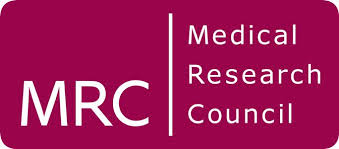
A pilot study of pulmonary rehabilitation and chest physiotherapy versus chest physiotherapy alone in bronchiectasis.
Mandal P, Sidhu MK, Kope L, Pollock W, Stevenson LM, Pentland JL, Turnbull K, Mac Quarrie S, Hill AT
Link to publication page: http://www.ncbi.nlm.nih.gov/pubmed/22947443
Journal Ref: Respir Med. 2012 Dec;106(12):1647-54. doi: 10.1016/j.rmed.2012.08.004. Epub 2012 Sep 1.
Abstract:
The aim of our study was to assess the efficacy of pulmonary rehabilitation in addition to regular chest physiotherapy in non cystic fibrosis bronchiectasis. Thirty patients with clinically significant bronchiectasis and limited exercise tolerance were randomized into either the control group receiving chest physiotherapy (8 weeks) or into the intervention group, receiving pulmonary rehabilitation in addition to chest physiotherapy (8 weeks). Both groups were encouraged to maintain their exercise program and or chest physiotherapy, following completion of the study. End of training (8 weeks) No improvement in control group. In the intervention group, incremental shuttle walk test (ISWT) improved by 56.7 m (p = 0.03), endurance walk test (EWT) by 193.3 m (p = 0.01), Leicester Cough Questionnaire (LCQ) improved by 2.6 units (p < 0.001) and St. George's Respiratory Questionnaire (SGRQ) by 8 units (p < 0.001). At 20 weeks (12 weeks post end of training) No improvement in control group. In the intervention group, ISWT improved by 80 m (p = 0.04) and EWT by 247.5 m (p = 0.003). LCQ improved by 4.4 units (p < 0.001) and SGRQ by 4 units (p < 0.001). Pulmonary rehabilitation in addition to regular chest physiotherapy, improves exercise tolerance and health related quality of life in non cystic fibrosis bronchiectasis and the benefit was sustained at 12 weeks post end of pulmonary rehabilitationAIM:
METHODS:
RESULTS:
CONCLUSION:

